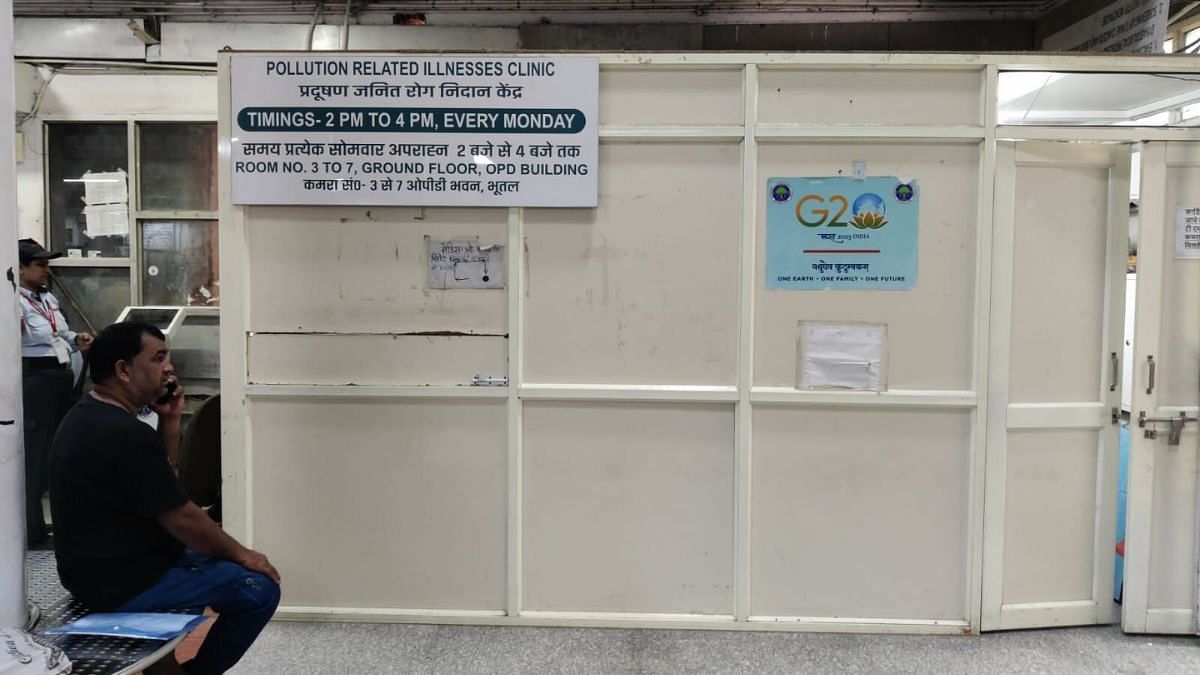New Delhi: Indian Chest Society—the largest network of respiratory medicine specialists in the country—has questioned a move by the National Medical Commission (NMC) to remove the respiratory medicine department from MBBS courses in medical colleges across India, especially amid the ongoing air pollution crisis in many parts of the country.
The medical education regulator had decided to exclude dedicated respiratory medicine departments from the MBBS curriculum, as outlined in its Undergraduate Medical Education Board (UGMEB) 2023 guidelines and the Competency-Based Medical Education (CBME) 2024 framework.
Prior to the ongoing academic year, MBBS students had to mandatorily study content related to respiratory medicine for one month during their course period.
In a press briefing Thursday, senior members of the Indian Chest Society said that this shift risks undermining both the quality of undergraduate medical education and the healthcare outcomes for respiratory patients across the country.
“While NMC says this has been done to reduce burden on MBBS students, this is a ridiculous argument, when the country needs more primary physicians to deal with rising respiratory diseases,” said Dr Rakesh Chawla, Vice-President of the society.
Experts emphasised that the removal of respiratory medicine as a dedicated department in MBBS programmes has far-reaching implications, such as loss of specialised knowledge, reduced quality of patient care and hindrance to national health initiatives, such as the National Tuberculosis Elimination Programme.
“It’s largely MBBS doctors who primarily provide patient services in small towns and rural areas through primary health centres and even private health facilities,” said Dr G.C. Khilnani, Director of the department of respiratory medicine at PSRI Hospital, Delhi, and Chairman of the Indian Chest Society (North Zone).
If they have not received primary training in respiratory medicine themselves, they won’t be able to treat patients suffering from respiratory issues at all, Khilnani said.
ThePrint reached NMC Chairman Dr B.N. Gangadhar via calls for a comments on the issue. This report will be updated if and when a response is received.
NMC’s move was already challenged by a group of respiratory medicine specialists in the Bombay High Court earlier this year.
According to the Indian Chest Society’s estimates, every year nearly 1,100 chest specialists—including physicians and surgeons—complete their courses from medical institutions, but the number of these specialists in the country is just about 25-30,000
According to Dr Chawla, India needs around 2 lakh chest specialists given the disease burden.
Also read: As Delhi chokes, city hospitals see surge in patients reporting ‘incessant cough, pounding headache’
The pollution crisis
The experts highlighted the escalating air pollution crisis in India, where Air Quality Index (AQI) levels have surpassed 1,000 in several regions, such as the NCR.
This severe pollution is leading to a marked increase in respiratory and cardiovascular illnesses, disproportionately affecting vulnerable groups such as children and the elderly, they said.
The extreme situation in the capital has prompted the Delhi health department to ask hospitals to monitor and report daily cases of respiratory ailments, including both outpatient (OPD) and inpatient (IPD) cases, and to promptly flag any unusual increase in the number of cases, said Dr Arun Madan, professor and head of the department of respiratory medicine at Delhi’s Hindurao Medical College.
A statement by the Indian Chest Society said that the long-term health implications of chronic exposure to air pollution include elevated rates of chronic obstructive pulmonary disease (COPD), asthma exacerbations, and other respiratory infections.
This impact is starkly visible in mortality statistics. In 2019, for instance, air pollution contributed to 1.67 million deaths in India, accounting for 17.8 percent of total deaths in the country, the statement noted.
It was also underlined that respiratory medicine has traditionally been an essential part of MBBS education in India, along with physical medicine and rehabilitation (PMR), and emergency medicine that were also removed in the UGMEB 2023 guidelines and the CBME 2024 curriculum.
It may have huge ramifications for the country which has the highest global proportion of tuberculosis and multidrug resistant tuberculosis in the world in 2023, according to World Health Organization’s Global Tuberculosis Report 2024, the statement by the society said.
It also cited the POSEIDON study, a large-scale survey conducted in India in 2015 based on the examination of 2,04,912 patients from over 7,400 primary healthcare practitioners across the country in a single day to understand common reasons for doctor visits.
The study had found that more than half—50.6 percent—patients presented with respiratory symptoms, making these issues the leading cause for medical consultation, affecting all age groups and regions, even before the Covid pandemic and severe pollution crisis in the country.
(Edited by Zinnia Ray Chaudhuri)
Also Read: Air pollution surpasses smoking, becomes 2nd-highest risk factor for strokes globally—Lancet study

